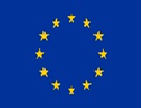About the Project

It is common knowledge that the media, through their dialectical relationship with the public, reproduce dominant narratives about gender, politics and social reality. In particular, research findings suggest that gender representations in advertisements, social messages, TV series, broadcasts etc. tend to reproduce stereotypical perceptions of femininity (the supposed ‘natural’ mission of women as a mother and a wife) that do not only ignore but work against the real experiences and needs of women and undermine women’s emancipation, autonomy and inclusion in the public sphere, participation in decision-making etc.
Moreover, when it comes to public and political debates, sexist remarks, unbalanced and unfair media coverage of gender issues significantly impact not only the opportunities of individual candidates (especially female ones) but also the public’s understanding of electoral stakes and the gender balance of the electoral results.
The project ‘Capacity building for women candidates and media stakeholders in public debates in Greece’ (GENDER_PUBLIC DEBATE) has been designed to address these issues and to achieve the general objective of reinforcing the capacity of Greek female politicians and candidates in the public sphere as well as media stakeholders (journalists, media studies students, bloggers) to recognize, address and prevent gender discrimination in public debates.
More specific objectives are:
120 media stakeholders to identify, respond to and prevent sexism and gender discrimination in the media and to raise their capacity to address such incidents and promote gender balanced journalism.
the capacity of 100 women politicians and candidates to identify and respond to incidents of sexism and discrimination in public debates and confront it in public.
the results of the project and engage stakeholders in a long term approach to promote discrimination free media.


This Project was co-funded by the European Union’s Rights, Equality and Citizenship Programme (2014-2020). Τhe content of this website represents the views of the author only and is his/her sole responsibility. The European Commission does not accept any responsibility for use that may be made of the information it contains.
